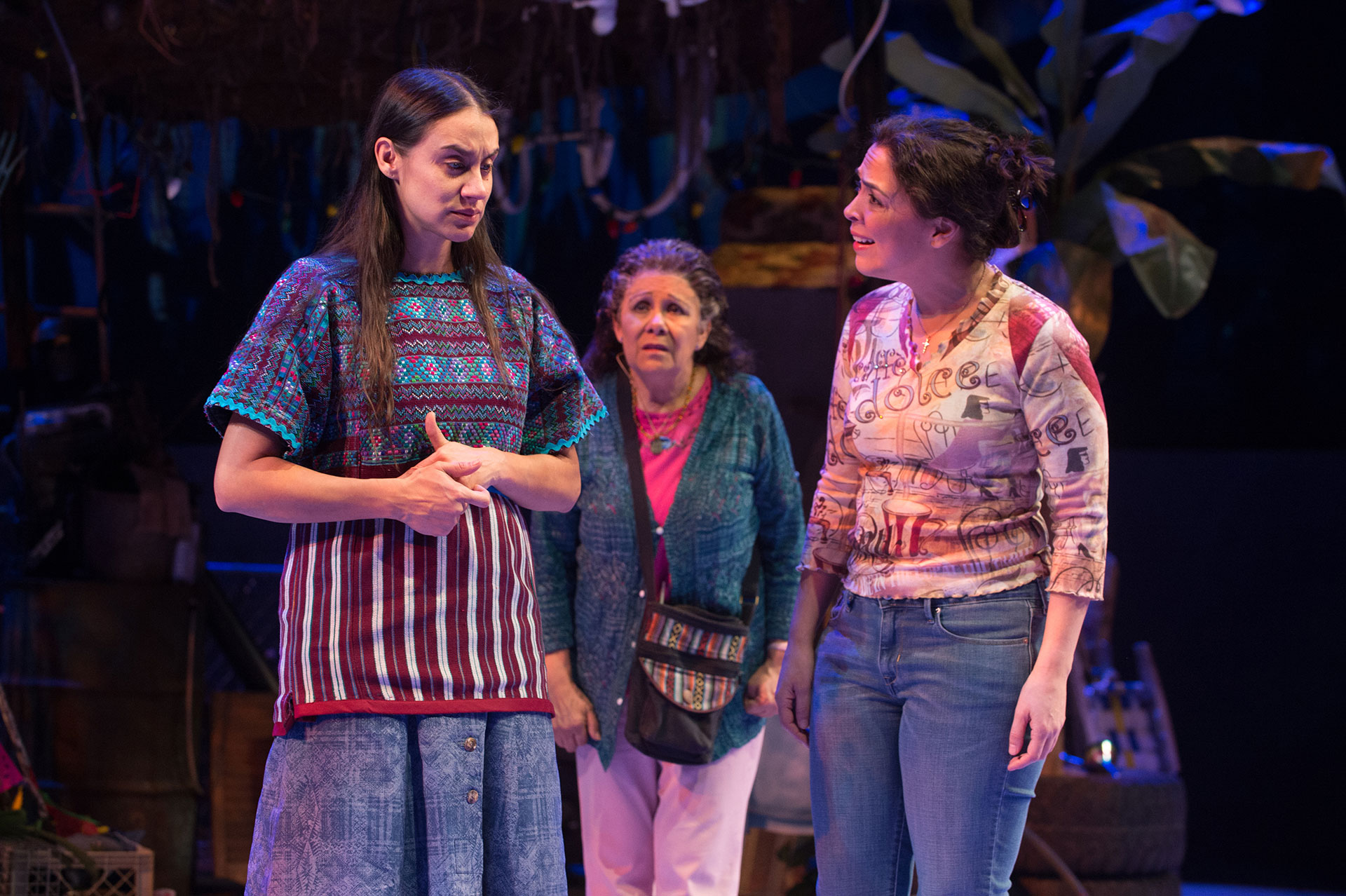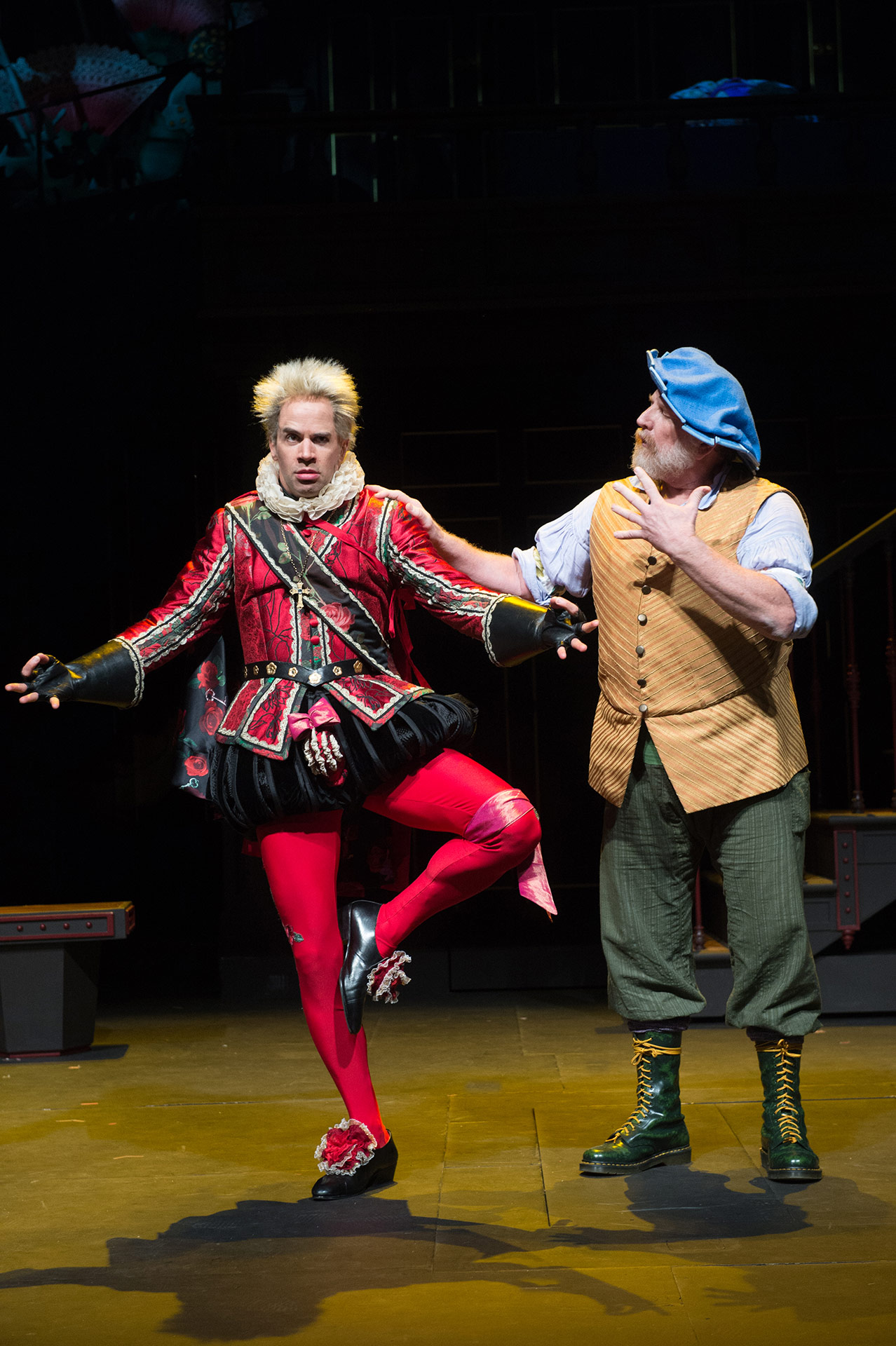| Aurora Theatre Company photo |
Aurora's final production of the season was the Bay Area premiere of Splendour, by Abi Morgan. As usual with Aurora, I found the production to be of pretty high quality, but this time the play itself didn't impress me much.
The Play
Set in an unspecified country undergoing economic and political turmoil, Splendour showcases the wife of a powerful general (Lorri Holt) who lives in, well, splendour, while much of the rest of the country descends into chaos and poverty. A foreign photo journalist (Denmo Ibrahim) has come to do a feature on the general and his wife, but the general isn't home yet. The journalist has a local interpreter (Sam Jackson) who is largely uninterested in doing the interpreting job, though she wants the cash for the job and wouldn't mind pocketing some of the general's bounty. And the wife has summoned her neighbor and long-time friend (Mia Tagano) to help her pass the time while they wait for the general to return.It's clear that everyone is scared and uncertain, but everyone is in a different situation and has different incentives and goals. So we watch the four women play off each other as the time passes and we wait for the general.
And then we do it again. And again. The play uses the trick of repeating the same basic scene, but with different emphasis, a slightly different viewpoint, and a bit more information trickling out each time. In theory, this layered presentation keeps the scene(s) interesting as we try to grasp the nuances of the changes, searching for revelations. In reality, I found it tedious, with the new "revelations" mostly things I had already either intuited or interpreted, but I found very little actually revealed in the repeating scenes. I had pretty much figured out all four characters' stories by the second or third time through, and the rest felt superfluous.
And really, there isn't much else to the play. If that one trick doesn't carry the show, there's not much to fall back on.
The Production
On the plus side, Michael Locher's set is nice, though not terribly imaginative. Again, it's all one scene, happening in the same room for the most part. It's well lighted under the designs of Kurt Landisman, and the sounds of the conflict outside are a steady presence, ably designed by Matt Stines.And the actors all do a credible job. Ibrahim and Jackson, playing the outsiders, have the most range to work with since their characters come in with one set of expectations and find themselves in another situation entirely. Holt and Tagano are somewhat stuck with their characters, though we do get to see some development.
Unfortunately, all the actors are stuck with the fact that they are playing the same characters in variants on the same scene multiple times, which quite limits what they can introduce each time through. I don't fault them for the limitations of the script, but I do wish they or director Barbara Damashek could have found a little more room for range, or hidden a few more nuances from the earlier versions of the scenes so we'd have more revelations and development as the scene repeated.
Overall
I have to say I came away disappointed. It felt like the ensemble was capable of delivering more, but Morgan's script just doesn't have that much for them. There's just so far you can go with tension and denial when you can't do any kind of big reveal that would spoil the repetitions. So we get little increments, creeping through the play, and ultimately there isn't much satisfaction. It felt like kind of a waste of the talents of the performers and designers and crew.And since I'm late writing this up, it's too late for you to choose to see it, anyway. What you missed was sort of an interesting exercise in theatrical writing that didn't turn out to be a particularly satisfying show to watch.


